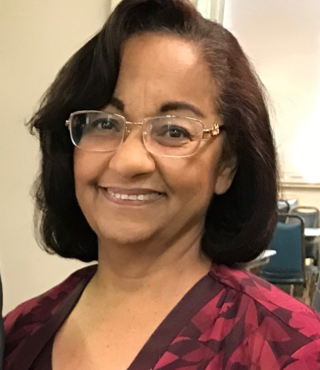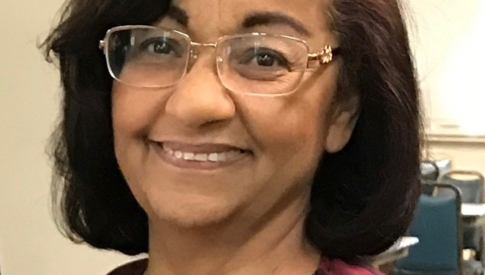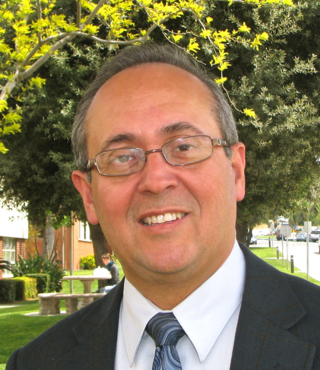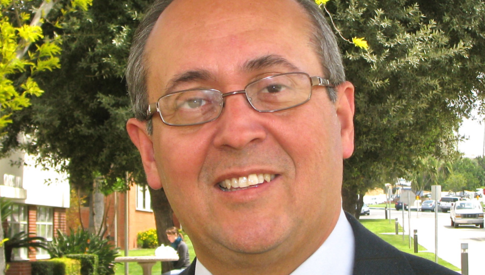We’re Stronger Together
With your help, we can make ambitious innovations in clinical care and education for our community.
Over a decade ago, Loma Linda University Health founded the Center for Health Disparities and Molecular Medicine (CHDMM). The center was our response to the intense health disparities that plague our region even to this day. The CHDMM is recognized as a Center of Excellence in Health Disparities and Minority Health by the National Institutes of Health.
The Cancer Health Disparities Research Program builds upon the foundation created by the CHDMM. The program focuses on cancer health disparities affecting minority groups in Southern California. Our researchers both serve and reflect the diverse population in this vast region.
We find ourselves in the heart of an area deeply affected by disparities. The people our hospitals serve are part of communities that face some of the nation’s worst socioeconomic challenges. We are called to identify and break down barriers to improve minority cancer patient outcomes here and everywhere.
The primary goals of the Cancer Health Disparities Research Program are to:
Loma Linda University Cancer Center is uniquely positioned to perform research and provide care for a diverse population. By focusing on our community’s challenges in a world-class research setting, we can illuminate disparities on a national level. In turn, we hope to improve cancer outcomes around the world.
Black women are more likely to die from breast cancer than white women. While socioeconomic factors like healthcare access and treatment delays play a key role, survival disparities for Black women remain a problem when normalized for such factors.
Dr. Daisy De León and her team have received federal and foundation grants for research into reducing breast cancer mortality in Black women. The team is studying:


“If I hadn’t been involved in breast cancer research, my sister might be dead today. That’s why it’s important to have a cancer center that understands that women from different backgrounds have different treatment needs. Our community needs us, right now.”
An essential component of the team’s grant funding is a community partnership program to raise awareness of health disparities. High school students, medical undergraduates and graduate medical students participate in summer workshops to research and learn how they can make a difference. Seminars and special activities help students understand how patients from different backgrounds may need different approaches to care.
The team hopes these workshops will serve as a foundation for continued expansion of disparity-related health services. More research, novel treatments and increased public awareness can and will save lives in our community and beyond.
The Cancer Health Disparities Research Program shares a large component with another one of our cancer research programs, the Pediatric Leukemia Research Program. This NCI-funded program investigates a specific type of B-cell acute lymphoblastic leukemia that disproportionately affects Hispanic children.
Work on unraveling this health disparity is close to our hearts as a large portion of our community is Hispanic. Our researchers hope to give kids in our community and across the globe a fighting chance against this deadly disease.
Prostate cancer is diagnosed earlier and is more aggressive in Black men. As a result, Black men are more likely to die from prostate cancer than white men. Dr. Carlos Casiano and his team are researching ways to fight this disparity.
Evidence suggests this disparity is produced by the interplay between genetic, biological and socioeconomic factors. However, studies show the disparity exists even when correcting for socioeconomic factors. Dr. Casiano’s team focuses instead on the genetic and biological factors that influence prostate cancer resistance to therapy, including psychosocial stressors.
Cumulative life stress is a measure of the number and severity of stressors occurring in a person’s lifetime. People with high cumulative life stress may develop increased expression of stress hormones, which may play a role in cancer. Black men have been shown to have higher than average cumulative life stress.
The team’s current NCI-funded project researches the role of stress hormones in prostate cancer. The project studies:
In keeping with the research program’s goals, the team holds health fairs for Black men in Southern California communities. The fairs provide free education and screening for glucose, obesity, body mass and prostate cancer. To reach as many people as possible, Dr. Casiano’s team organizes the fairs in partnership with local churches, Dr. Susanne Montgomery and Dr. Lisa Roberts.
At the fairs, investigators from the LLU Schools of Behavioral Health, Medicine, Nursing and Public Health both provide vital services and collect valuable data. Men are invited to participate in the team’s research by consenting to the use of blood samples and health information in research studies. The community’s positive response to this invitation is helping break the stereotype that Black men don’t want to participate in research.
When approached by trusted members of the community, men who wouldn’t otherwise get screened come to the fairs for testing. The team hopes that, through education, the fairs encourage men to visit a doctor for screening more often.


“When one man got his PSA results, he went from somber to ecstatic. He rushed to his wife in the parking lot, waving the printout and exclaiming, ‘It’s negative! It’s negative!’ She was smiling. That tells you these fairs are making a difference.”
Catherine Elix, PhD
Greisha Ortiz – PhD student
Evelyn Sanchez – PhD student
Erika Altamirano – PhD student
Brenda Delgado – volunteer technician
Sponsor: National Institutes of Health – National Cancer Institute
Title: Glucocorticoid Signaling, Taxane Resistance, and Prostate Cancer Disparity Mortality
With your help, we can make ambitious innovations in clinical care and education for our community.